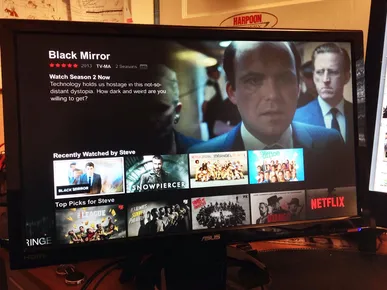
Netflix's Black Mirror: looking at screens versus looking at Christ

Niv Lobo
W.H. Auden, the 20th century poet, once said: "Every man carries with him through life a mirror, as unique and impossible to get rid of as his shadow." It’s a striking metaphor, describing the personal impact of how we see ourselves.
Auden proposes a "parlour game for a wet afternoon — imagining the mirrors of one’s friends." But in the 21st century, we don’t have to imagine.

What we can learn from Larry Sanger's journey to faith

Niv Lobo
On February 5, just last week, Larry Sanger — a former philosophy professor and a co-founder of Wikipedia — announced his conversion to Christianity. He accompanied it with a long account of how that happened.
What’s going on? A vibe shift? A revival? A surprising rebirth of belief? Whatever is happening at a cultural level, I give thanks for Sanger’s testimony. Reading it was a delightful, encouraging experience; there were moments in Sanger’s story which struck me with a wonderful freshness, as well as others which resonated with my own coming to faith. It’s long, but I recommend reading it for yourself.
'Stranger Things' and endings
Over the Christmas holidays, Netflix released the final series of Stranger Things.
Since the first series in 2016, we’ve followed the outbreak of a dark, supernatural force in Hawkins, Indiana, the machinations of the US government and the military, and the children and teenagers who band together to confront it all.